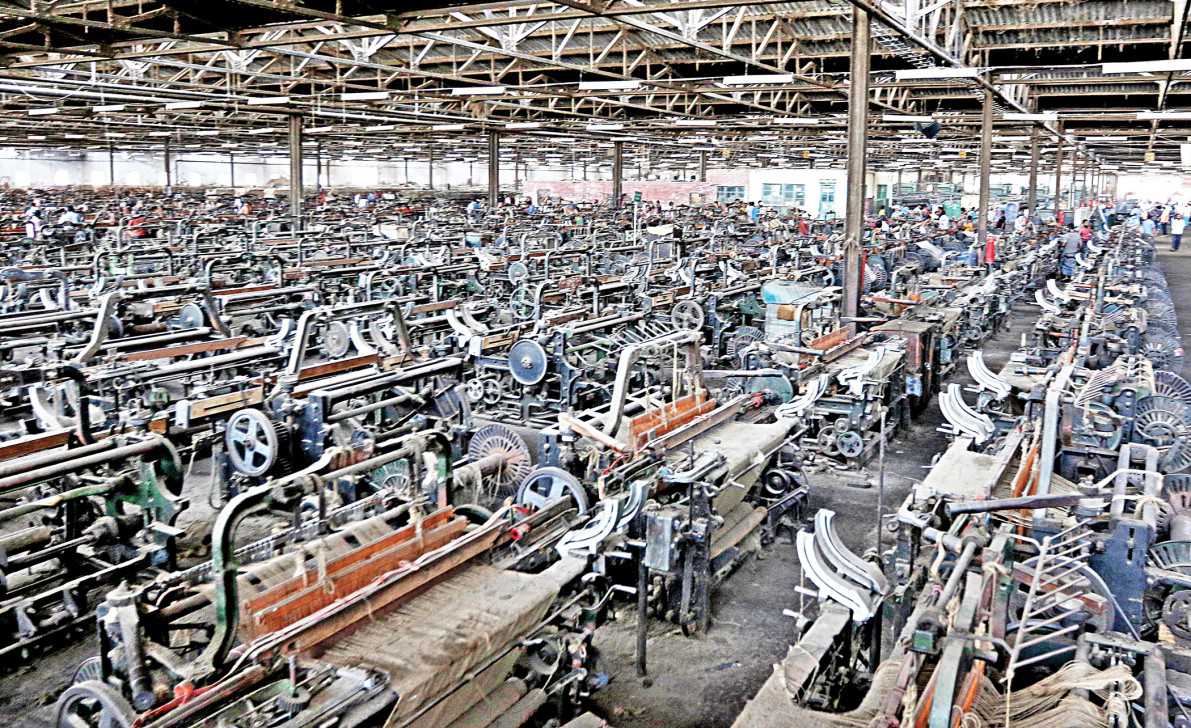Private sector players promising shuttered BJMC mills a fresh lease on life

Image collected
The federal government is considering giving priority to leasing out state-owned jute mills to the private sector so that production could resume within a short while, according to officials of the textiles and jute ministry and industry stakeholders.
The development employs the ministry found a greater response from private millers in dealing with the 25 mills shuttered last month instead of the other options it had floated, including public-private partnerships (PPP).
Some millers said the PPP process was time-consuming and complex plus they lacked the data and experience to use under the system.
The views came in the first two meetings of the 13-member committee headed by Textiles and Jute Minister Golam Dastagir Gazi held on 23 July and 5 August.
Some participants suggested declaring the machinery to be scrap although some recommended dividing the mills into three categories to be leased out, modernised and brought beneath the PPP.
Proposals were also put for handing over some mills to the Bangladesh Investment Development Authority (BIDA) and the Bangladesh Economic Zones Authority, according to minutes of the meetings.
The federal government formed the panel on 16 July to recommend measures to modernise the production system of jute goods in light of the present and future market prospects and restart the plants beneath the Bangladesh Jute Mills Corporation (BJMC).
The panel comprises the executive chairman of BIDA; secretaries to finance, commerce, industries and textiles ministries; a director-general at the Prime Minister's Office; and presidents of the Federation of Bangladesh Chambers of Commerce and Industry, the Bangladesh Jute Mills Association (BJMA) and the Bangladesh Jute Spinners Association.
The federal government closed down all 25 jute mills that employed 24,886 long term workers and a big number of casual employees from 1 July to bring an end to continuing losses resulting from the utilization of decades-old machinery, corruption, mismanagement and operational costs higher than those in the private sector.
Since the closure, the federal government has been maintaining that it would give the factories, which were nationalised in 1972, a fresh lease on life either beneath the PPP, government-to-government initiatives, joint venture or on lease.
Initially, the committee decided not to sell the lands of the closed jute mills for just about any other purpose, according to minutes of the first meeting.
In its second meeting, the committee decided to "consider leasing out mills as an efficient and useful solution to restart mills within a short while" by keeping the government's ownership on land and other properties.
It also decided to consider other options predicated on circumstances.
As per the decision, BJMC also offered scope for interested investors to go to the shuttered plants in a way that they could see the condition of the factories and other properties.
Some 24 interested investors visited the mills positioned in Chattogram, Khulna and Dhaka divisions. The deadline for visiting the mills ended on 20 July.
BJMC Chairman Md Abdur Rouf, however, said interested investors would be able to visit factories if they want. On the technique of the handover, he declined to comment.
Mohammad Abul Kalam, member secretary of the committee, said leasing those out was a choice.
"All of the options are on the table. We have not chosen anything yet," he added.
The investors would not be thinking about taking rent of the mills for short periods, said Mohammed Mahbubur Rahman Patwari, chairman of BJMA.
As the government says you won't sell the land, no other option will be feasible apart from a long-term lease, he said, adding that the federal government understands that the lease format will be better to jumpstart production at the mills at the initial.
He favoured giving out leases for 99 to a century as banks won't provide finance to those not on a long-term lease.
As the mills have been established in the past, many bits of machinery had become old and their capacities had eroded, said Patwari, who has visited some of the mills adjacent to Dhaka.
"As the machinery is old, new owners could have to get started on anew,"
The panel also made a decision to determine the recovery value of the machinery and divide mills into three categories depending on the health of the machinery, said Patwari, also an associate of the committee.
Aameir Alihussain, managing director of steelmaker BSRM, said they wanted to explore the prospect of investment in the state jute mills.
"We are interested at the mercy of due diligence," he said, while urging the authorities to make all the details available, give time and ensure clarity.
Source: https://www.thedailystar.net
Tags :
Previous Story
- BIDA boss charms more ventures from UK
- Mercedes, BMW in talks to open assembling plants...
- BD to draw in $10b venture from UAE
- Time to reform the finance ministry for robust...
- BIDA to create 24,000 new entrepreneurs in 2yrs:...
- Bangladesh top among South Asia’s favoured investment destination:...
- Initiative to build battery powered cars in the...
- BIDA launches ‘game-changing’ training to create entrepreneurs